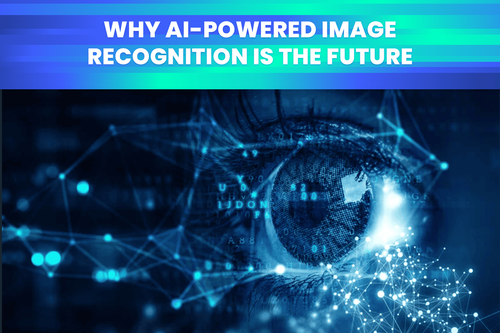AI drives swift changes in the software development landscape today. From code generation to bug detection and documentation, tools like GitHub Copilot, ChatGPT, and Replit Ghostwriter are automating previously manual tasks, leading to significant shifts in how developers approach projects.

As per a video I have recently seen on YouTube, it is essential in 2025 to learn code, but low-code and no-code tools are emerging as powerful alternatives. Tools like multi-agents, communication tools, image generation tools, and music generation tools are becoming essential for simplifying the development process. This shows how AI and automation tools are already playing a key role in making development more convenient and efficient (Source: YouTube)
According to the 2024 Stack Overflow Developer Survey, 76% of developers are either currently using or planning to use AI tools in their workflows. It is an increase from 70% in 2023 (Source: Stack Overflow)
This surge reflects AI’s growing role as an assistive, productivity-enhancing companion rather than a standalone coder.
However, as these tools become more capable, the conversation shifts: Will programmers still be essential? The answer is a firm yes, but the nature of programming is evolving.
The evolving role of programmers
Despite recent advancements in AI technology, human programmers still maintain their essential role. The capabilities of AI systems remain limited because they require human input and confirmation for their tasks. Developers provide context, define problems, validate solutions, and manage complexity in ways AI cannot replicate alone.
As John says in the attached video, “Even for experienced developers, the fundamentals are crucial in 2025. Knowledge of coding basics forms the foundation on which new tools and methodologies will build.” This reflects the sentiment that AI tools, while powerful, need to be leveraged alongside strong coding fundamentals. (Source: YouTube)
A developer’s work is not just about writing lines of code. It’s about:
- Understanding the business logic and user needs.
- Architecting systems that scale and integrate with existing platforms.
- Making decisions when trade-offs are involved (performance vs. readability, flexibility vs. speed).
- Fully understanding and keeping code’s security standards up to date.
The U.S. Bureau of Labor Statistics projects a 17.9% increase in software developer employment from 2023 to 2033, outpacing most other industries (Source: bls).
In addition to mastering traditional programming, learning how to use AI is becoming equally critical. AI tools are reshaping the coding process and are essential for improving productivity and innovation. Great Learning’s AI programs and Generative AI Course provide valuable resources for developers to enhance their skill sets and stay competitive. These programs cover the fundamentals of AI, enabling programmers to not only understand how AI works but also how to integrate it into their daily coding tasks.
The imperative to upskill
To stay relevant, today’s programmers must expand beyond traditional development. AI is changing what’s valuable — and this means developers need to be learners first, coders second.
Gartner predicts that by 2027, 80% of software engineers will need to upskill to remain competitive as AI capabilities reshape the tech workforce (Source: Medium).
Key areas for upskilling:
- AI & ML fundamentals: Understand model behavior, bias, and performance.
- Prompt engineering: Know how to communicate effectively with generative models.
- Data literacy: Learn to work with structured/unstructured data.
- Ethical coding: Understand the social impact and risks of deploying AI-based systems.
Upskilling isn’t just about acquiring knowledge — it’s about adapting workflows to include AI tools in ideation, testing, and deployment stages.
For professionals aiming to deepen their understanding of these emerging areas, the Generative AI Courses by Johns Hopkins University offers a powerful learning opportunity. Delivered in collaboration with Great Learning, this program equips developers with hands-on skills in prompt engineering, multi-agent systems, and responsible AI development, preparing them to drive innovation in AI-powered environments. The program also lets you earn a certificate from JHU, a globally recognized university.
Earning a **Gen AI certification **through such a program not only validates your expertise but also signals your readiness to thrive in the evolving AI-augmented tech landscape.
Embracing AI as a collaborative tool
AI is best viewed as a co-pilot, not an autopilot.
Consider **GitHub Copilot **— studies have shown it can reduce the time taken to complete tasks by up to 55% for certain programming challenges (source). But it doesn’t replace the developer; it augments them by:
- Offering real-time suggestions based on context.
- Handling repetitive code blocks and boilerplate.
- Supporting rapid prototyping.
This shift changes the nature of programming — from writing every function line-by-line to designing systems and curating intelligent workflows that make the best use of human and AI capabilities together.
In 2025, tools like Stable Diffusion and Adobe Firefly will significantly improve workflow, making programming more efficient.” This shift changes the nature of programming — from writing every function line-by-line to designing systems and curating intelligent workflows that make the best use of human and AI capabilities together.
Skills that will set programmers apart
As programming becomes more AI-assisted, the soft and strategic skills will become even more important. Here are some future-proof skills:
- System Design Thinking: Knowing how to architect reliable, secure, and scalable systems will always be in demand.
- Problem Decomposition: The ability to break down complex challenges into solvable chunks.
- Human-AI Interaction: Prompt engineering, instruction tuning, and feedback loop design.
- Ethical Reasoning: Anticipating the long-term consequences of deploying models and tools into real-world ecosystems.
In short, programmers of the future must be great thinkers and designers, not just code typists.
Conclusion: Navigating the future of programming
AI will not replace programmers, it will redefine what programming looks like. Developers who learn to work with AI rather than resist it will be the ones shaping the next generation of software.
The future coder will:
- Use AI to accelerate execution.
- Apply logic, judgment, and creativity to guide AI.
- Continuously evolve by embracing new tools and paradigms.
Adaptability is the new job security. Upskill, embrace AI, and become the kind of programmer who leads change, not the one who gets left behind.





